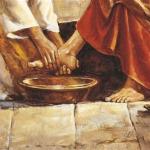When I was young, I could not appreciate Westerns. I found them dull. The pacing was slow, the acting wooden, and the sets looked to be little more than cardboard cutouts. The only exception was The Lone Ranger; why, I don’t know for sure, but maybe it is because he was a superhero who just happened to live in the Old West.
Things changed. While I am not a fan of the entire genre, there are some Westerns which I enjoy and own in my movie collection. The movie which convinced me I was too critical about Westerns was 1993’s Tombstone.
Tombstone was a movie which crossed the genres, and can be and is enjoyed by those who do not normally like Westerns. It’s a very human drama with flawed (very flawed) protagonists. The heroes have their vices – some great vices, human vices – and yet, in the movie, one gets a sense, of course it is only a sense, that these vices are being highlighted to make us question the very idea of the Western hero.
http://www.youtube.com/watch?v=I71-MNZUMQIIn a time where the rule of the gun became the rule of the law, blood feuds developed based upon political positions: the Cowboys with Curly Bill, Johnny Ringo, and the Clanton clan represented the ranchers and were Democrats; The Earps, representing the miners and developing urban life, were Republicans. Both sides represented the law, with the Cowboys having the authority of the local law behind them (sheriffs) and the Earps having the authority of federal law (marshals) behind them.
Tombstone shows this historical reality to some extent, but it follows popular history where the Earps are the heroes. Yet, there is an undertone throughout the film where one gets to believe that both sides were in the wrong, and this finds its climax when Doc Holliday fights and beats Johnny Ringo:
http://www.youtube.com/watch?v=mfMkzqA7LrMDoc Holliday kills Johnny Ringo with the “authority” of the law behind him, but he can’t stand it, and drops his badge onto Ringo’s dead body. When Wyatt discovers it, Doc Holliday’s explanation is key: “My hypocrisy only goes so far.”
While Kurt Russell is excellent as Wyatt Earp, Val Kilmer’s performance as Doc Holliday is second to none, and the true highlight of the film. Some of the best scenes, such as his first meeting with Johnny Ringo, are unforgettable (and as the following clip shows, easily collected together).
http://www.youtube.com/watch?v=8yDgkvWh3JQThere is something very Dostoevskyish about Doc Holliday (both in Tombstone and in real life). Living with his death ever before him, he was, for the most of his life, a nihilist living out its ethic of selfishness to the fullest. Yet it was the friendship which he developed with the Earps, especially with Wyatt, which got through to him and showed him there was something more: if friendship can truly exist, with the self-sacrificing loyalty it requires, then there truly is more to life than living for the self. In the end, in the movie (and from what I understand, in real life), the effect of this could be felt: Doc Holliday died a Catholic.
http://www.youtube.com/watch?v=5v2ZBqjZyjATombstone is a film many people can just sit and watch and enjoy. Yet it is more than your typical popcorn flick: with characters and personalities so well developed, it can and does portray many of the fundamental questions that are found in any good work of drama. And it is this which makes Tombstone so memorable.















